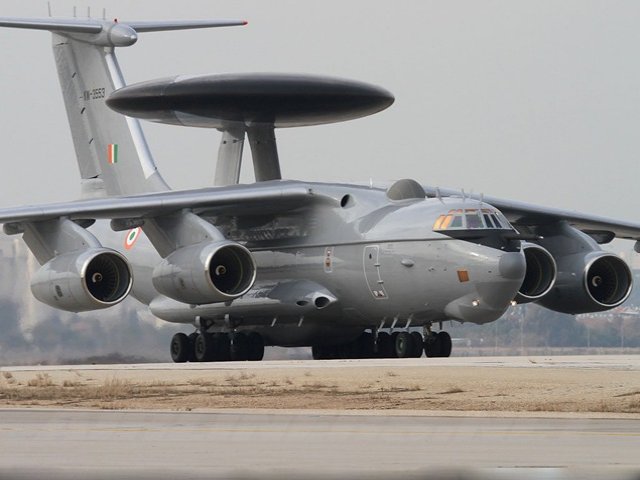Breaking news
Outside Aero India 2015, India could sign defence contracts worth $1.5 Bn with Israel.
|
Defense & Security News - India / Israel
|
|||
|
|
|||
|
|
|||
| Outside Aero India 2015, India could sign defence contracts worth $1.5 Bn with Israel | |||
|
According to International Business Times, India and Israel are likely to finalise a major defence deal, which would see two more Phalcon AWACS (airborne warning and control system) and four aerostat radars, in a deal worth almost $1.5 billion (€1.3 billion). The deal could be conclude during Aero India 2015
|
|||
|
|
|||
 Two more Phalcon AWACS could be purchase by India Two more Phalcon AWACS could be purchase by India |
|||
|
|
|||
|
Israel's defence minister Moshe Ya'alon will visit Bangalore for the Aero-India show (18-22 February) and will be accompanied by the director-general Major General (retd) Dan Harel and the CEOs of major Israeli defence companies. 15 Israeli companies are expected to exhibit their goods, with hundreds of Israeli representatives participating in the exhibition. During the visit, he will meet with India's defence minister Manohar Parrikar. Ya'alon's visit is the first such visit by an Israeli minister, since the two nations set up full diplomatic ties in 1992. India for long has kept the long-standing policy of expansive bilateral military ties under wraps, worried about international and domestic political sensitivities. Israel today ranks amongst India's top three defence equipment suppliers, the other two being US and Russia. Since the Kargil War of 1999, Israel has supplied India with Harop "killer" drones, Crystal Maze precision-guided munitions, Heron and Searcher UAVs (unmanned aerial vehicles), Green Pine radars to Python and Derby air-to-air missiles, and the two countries have also worked together on many projects. The Israeli supply of weaponry is said to have cost India almost $10 billion (€8.8 billion). The finance ministry recently allocated funds for the acquisition for two more Phalcon AWACS. Those AWACS have a 400 km range and a 360 degree sweep coverage, which allows detection of airborne enemy aircraft, cruise missiles and drones, much before ground-based radar can. The AWACS also acts as a potent force-multiplier, by directing air defence planes and missiles to be directed at enemy air force. "The CNC (contract negotiations committee) has been concluded. After the finance ministry, it will be sent to the cabinet committee on security for the final nod," EconomicTimes quoted a source as saying. India currently has three Israeli made Phalcon AWACS fitted onto Russian IL-76 aircraft. The tripartite deal in 2004 saw India, Israel and Russia come together under the $1.1 billion contract (€0.9 billion). India is poised to finalise four additional aerostat radars – sensors mounted on large balloons tethered to the ground. India already has two EL/M-2083 radars, bought from Israel in 2004-2005 for $145 million (€127 million). India recently agreed to acquire 250 Israeli Spice guidance kit for converting air-droppable unguided bombs into precision guided bombs for fighter jets and also Heron medium altitude, long endurance UAVs. It rejected a hard-sell by US for its Javelin anti-tank guided missile (ATGM), choosing to go with the initial purchase of 321 Israeli Spike ATGM launchers and 8,356 missiles. With the US continuing to offer India the chance to co-develop and co-produce the next generation of Javelin ATGMs, India could go to Israel for its large-scale indigenous manufacture of ATGMs by the state-owned Bharat Dynamics. The Indian Army has chosen to equip its 382 infantry battalions and 44 mechanised infantry units with ATGMs to counterbalance enemy tanks and other military infrastructure. |
|||



















